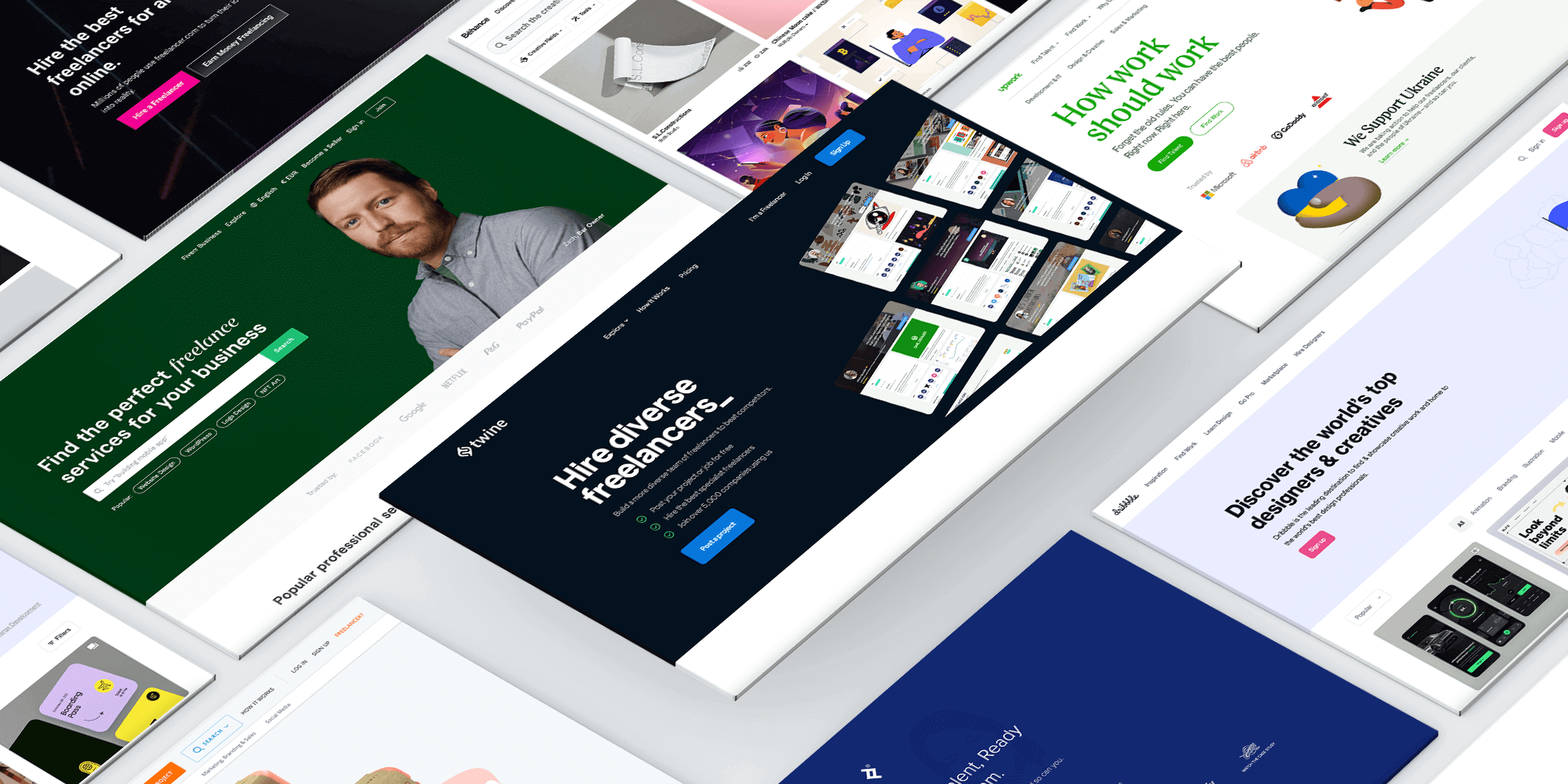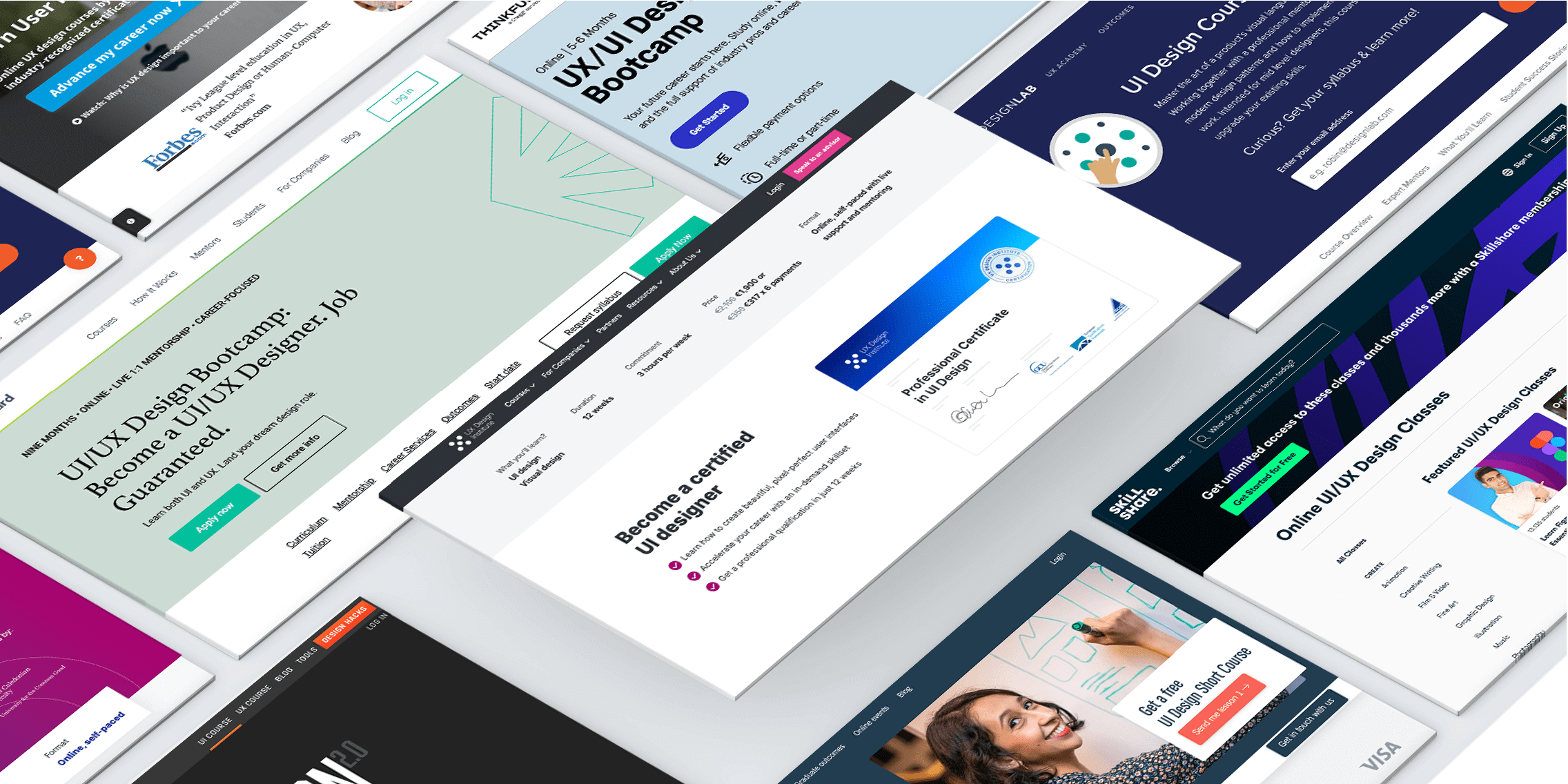[This article has been updated for 2024]
UX design is one of the most in-demand jobs out there. Plus, in today’s increasingly digital world, it can be a useful skill to have even if you don’t plan to launch a full-time UX career.
One of the best ways to learn about UX design is to take a course. Today, there are numerous options available that will cost you absolutely nothing but your time and attention. If you’re a beginner, you can find a course that covers the basics, and if you’re a mid or senior-level UX designer, you can find a course that will enhance your existing knowledge and skillset.
To help you find a course that works best for you, we’ve run a comparison of the best free UX design courses. Here are our topbest picks for 2024.
What is UX design?
UX design, or user experience design, focuses on the entire experience a user has with a product or service. It’s all about creating products that feel intuitive and logical, are straightforward and easy to use, and that help the user to solve a specific problem or complete certain tasks.
UX design encompasses:
- Extensive user research to understand the target group
- Defining a specific challenge or problem the product or service should solve (usually expressed through a concise problem statement)
- Mapping out the user/customer journey to define and visualise the various steps and touchpoints a user will go through to accomplish certain tasks while interacting with the product you’re designing
- Defining the product’s overall layout and architecture (this includes creating wireframes and planning the product’s information architecture—that is, how content and information should be structured and organised throughout the product)
- Testing and validating product ideas and design concepts
- Working with UI designers to determine the product’s visual and interactive properties (when focusing on digital products like apps and websites)
- Continuously testing and iterating on designs to improve the user experience
As you can see, UX design is an incredibly varied discipline. It’s rooted in problem-solving, empathy, user-centricity, and strategy—with the goal of creating a positive experience for the end user while delivering value to the business.
That’s UX design in brief. If you’d like to learn more about what UX design is and why it’s so important, refer to this guide: What does UX stand for and what does it mean? and get familiar with some real-world examples of good vs. bad UX.
What does a UX designer do?
UX designers are ultimately responsible for ensuring that the end user has a positive experience with a company’s product(s) or service(s). At the same time, they have to think about how the product ties in with the company’s overall strategic vision and business goals.
As such, UX designers carry out a broad variety of tasks. The role encompasses everything from conducting research and creating user personas, running ideation sessions to develop product ideas and concepts, to designing product wireframes and prototypes, and conducting regular usability tests.
UX designers may also be responsible for defining a UX strategy, tracking UX KPIs (key performance indicators), and maintaining design systems and documentation.
Working as a UX designer requires a diverse and varied skillset, comprising a mixture of both hard and soft skills. Free UX courses won’t teach you absolutely everything you need to work in the field (for that, we’d recommend a more comprehensive UX course)—but they’re a great way to dip your toe in and learn some fundamentals.
If you’d like to learn more about the role of a UX designer, read up on the UX design process and explore what a day in the life of a UX designer looks like.
The 8 best free UX design courses available in 2024
1. UX Design Institute’s Introduction to UX Design
The UX Design Institute offers a free UX design course for beginners to UX design that consists of content taken from its university credit-rated programme in UX design. It’s a great survey of topics in UX design as well as a great introduction to everything the UX Design Institute’s programme has to offer.
Brief video lessons are emailed to students every day for seven days along with additional resources for anyone who wants to learn more about a particular topic. The course’s lessons will help newcomers to the field learn the fundamentals of UX while deciding if a UX career might be a good fit for them.
Course highlights:
- An email containing a video lesson is sent to students each day for seven days
- The curriculum is taken directly from the UX Design Institute’s university credit-rated UX programme
- Provides a brief but comprehensive introduction to key UX design topics
2. University of Michigan’s Introduction to User Experience Principles and Processes on Coursera
Coursera is a Massive Open Online Course (MOOC) platform that offers free classes on almost any topic you can think of, including a number of UX classes. For those looking for a thorough introduction to both UX design and UX research, one of the best is University of Michigan’s Introduction to User Experience Principles and Processes.
Their free UX design course covers everything from how to conduct user interviews to sketching and prototyping UX design concepts, while maintaining a focus on user needs. Each week there are videos, readings and practice exercises that will ensure you will come away with a thorough understanding of the material.
Course highlights:
- The course is 6 weeks long and will take 12 hours to complete
- Teaches the fundamentals of both UX design and UX research
- Upon completion students receive a shareable certificate
3. Hack Design’s free UX design course
Hack Design’s course is an easy option for anyone interested in staying current on what’s happening in web design at any level of experience. Each week a lesson about some aspect of design is sent to students’ inboxes. The lessons are curated by industry professionals and may include lists of resources, explanations of techniques, introductions to design tools or interactive content that will help students enhance their understanding of design in ways that can improve their work in the field.
Topics are wide-ranging and can cover everything from user interface design to typography to front-end design but there’s a strong emphasis on various aspects of user experience and interaction design. The course is entirely self-paced and students learn independently, so they can do a deep dive into the topics they’re interested in and ignore the rest. The first 50 lessons are currently available to check out on Hack Design’s website, so potential students can take a look and get an idea of what to expect if they sign up.
Course highlights:
- A single lesson is sent to students’ email inboxes each week
- Each lesson is curated by top designers
- Lessons cover different aspects of web design, and are especially well suited for those working in the industry
4. UX Writing Hub’s A Taste of UX Writing
UX writer is a increasingly in-demand job title in the UX field. If you want to learn more about what a UX writer does, the UX Writing Hub’s free online intro course is a great option for everyone. It’s suited to beginners and long-time UX professionals who want to acquaint themselves with this new area of UX, as well as writers who are wondering if UX writing would be a viable option for them.
The self-paced course consists of eight brief modules that include lessons and quizzes and it wraps up with a final exercise that brings everything together. It covers all aspects of UX writing including topics like understanding microcopy, writing user journeys and creating a content style guide. Along the way it teaches you the basics of how UX writing fits into the larger UX design process, ensuring you complete the free UX design course with a thorough understanding of everything UX writing entails.
Course highlights:
- The course consists of eight brief modules which can be completed at the student’s own pace
- Each module focuses on a different aspect of UX writing
- The course provides a real-world overview of what it’s like to be a UX writer
5. Georgia Tech’s Human Computer Interaction II: Cognition, Context and Culture on edX
This course, which is adapted from part of a class that’s included in Georgia Tech’s online Master of Science in Computer Science programme, is offered via the MOOC provider, edX. It is the second in a series of four courses Georgia Tech offers on Human-Computer Interaction (HCI), a topic that’s the cornerstone of both UX and UI design.
Beginners to HCI should start with the first free UX design course in the series, Human Computer Interaction I: Fundamentals & Design Principles. However, for those who’ve already been working in the UX industry, this second course may be of more interest. It delves into the psychology and cognition of users by exploring topics such as mental models, learned helplessness, user errors and hierarchical task analysis. The course also takes a wider view by covering how people and technology work together to form larger cognitive systems and how society impacts design and how design impacts society.
Course highlights:
- The course is six weeks long and requires five to six hours of work each week
- Lessons focus on user psychology and cognition, and design’s impact on society
- An introduction to user behaviour that may be especially useful to mid-level UX designers
6. Gymnasium’s UX Fundamentals
This free UX design course, available on staffing agency Aquent’s online Gymnasium platform, is geared towards beginning UX designers and web and UI designers who want to learn more about UX design. It requires that users have access to a programme like Adobe Photoshop, Microsoft Powerpoint or Apple KeyNote and know how to use it to make simple drawings for assignments.
The course is taught by an industry professional and includes six lessons that provide an overview of UX, including identifying UX goals, creating wireframes and prototypes, understanding content organisation, using UX design patterns and conducting usability tests. Each lesson includes short videos explaining the topic and wraps up with optional quizzes as well as homework assignments.
Students also have access to an online forum where they can join discussions and receive feedback from their fellow students as well as from teaching assistants. The course concludes with a final exam and those that get an 85% or higher will earn a certificate.
Course highlights:
- The course videos take around three hours to go through
- An online forum enables students to share their assignments and get feedback from teaching assistants
- If students pass a final exam with 85% or better, they receive a printable certificate
7. Kickass UX free UX course
If you’re looking for a thorough and hands-on introduction to UX, consider this free course offered by Kickass UX.
Comprising 22 video lessons and a Figma workbook, the course takes you through a UX project brief for REI (Recreational Equipment, Inc.), an American retail and outdoor recreation services company. As you work through the brief, you can compare what you come up with to existing solutions—giving you built-in feedback and guidance.
Spanning topics such as UX stakeholder relationships, user research, and framing the problem to solve, through to information architecture, wireframing and prototyping, and design handoff (plus many more in between), this free course ensures a well-rounded introduction to the field of UX.
Course highlights:
- Benefit from hands-on, project-based learning with a project brief based on a real company
- Learn UX within the context of Figma, one of the most important industry-standard UX design tools
- With over 22 lessons, enjoy a comprehensive and well-rounded curriculum exploring a variety of key topics
Another Figma-focused course, this beginner-friendly introduction is taught by Daniel Scott, an Adobe Certified Trainer, via Skillshare.
Through on-demand video lessons which you can access in your own time, you’ll learn what Figma is used for, how it works, and, most importantly, how to carry out a variety of UX and UI-related tasks using this industry-standard tool.
Prepare for a hands-on exploration of design in Figma, covering everything from wireframes and prototypes to flows, animations, and micro interactions. Note that the course is particularly UI-heavy compared to other free UX courses on our list—a great option if you’re interested in both UX and UI design.
Course highlights:
- A comprehensive curriculum comprising over 100 lessons
- Hands-on projects and assignments, enabling you to learn-by-doing (and create some great material for your UX design portfolio)
- Be part of a community of over 35,000 fellow UX students
What else can you do to learn UX design?
Free UX design courses offer a great starting point, allowing you to explore the fundamentals of UX design and gain some initial insight into what it’s like to work in the field.
Besides free courses, you can pick up basic UX skills and learn more about the industry (and the job market) by watching free YouTube tutorials, experimenting with different industry tools (including AI-powered tools for UX), following UX influencers, and reading blog articles and thought leadership content. Here are some resources to get you started:
- What skills do you need to become a UX designer?
- Is the UX job market oversaturated? An in-depth analysis and outlook for 2024 and beyond
- Want to become a UX designer? Here’s how your ‘unrelated’ experience will help you

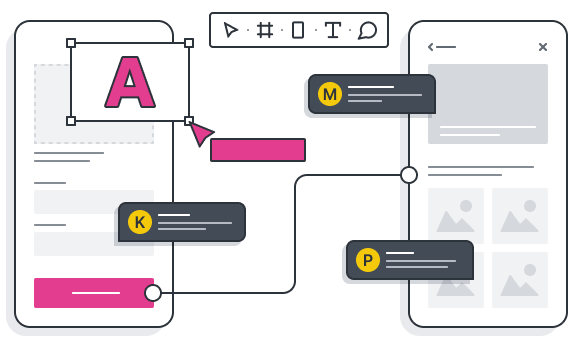
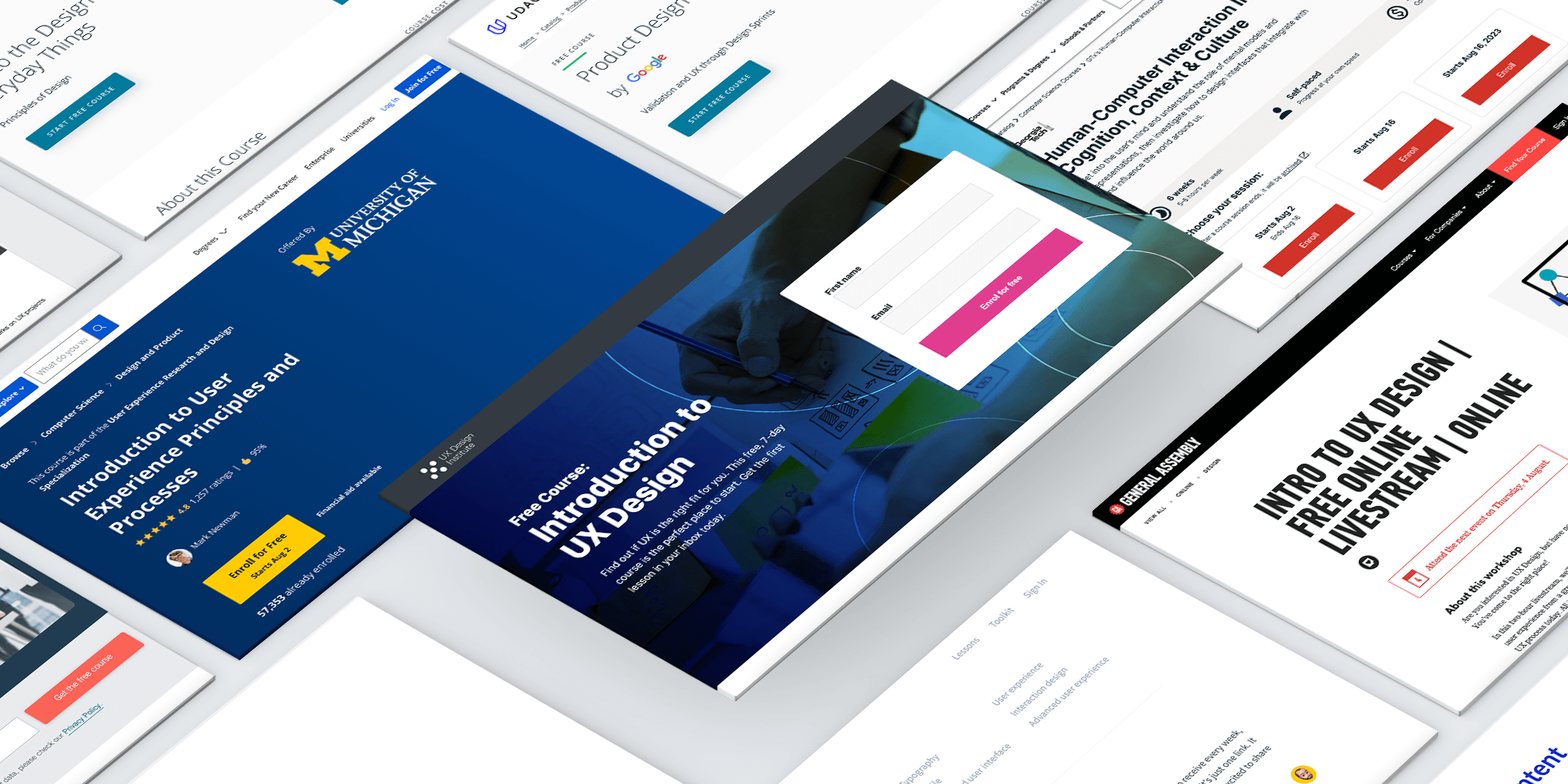
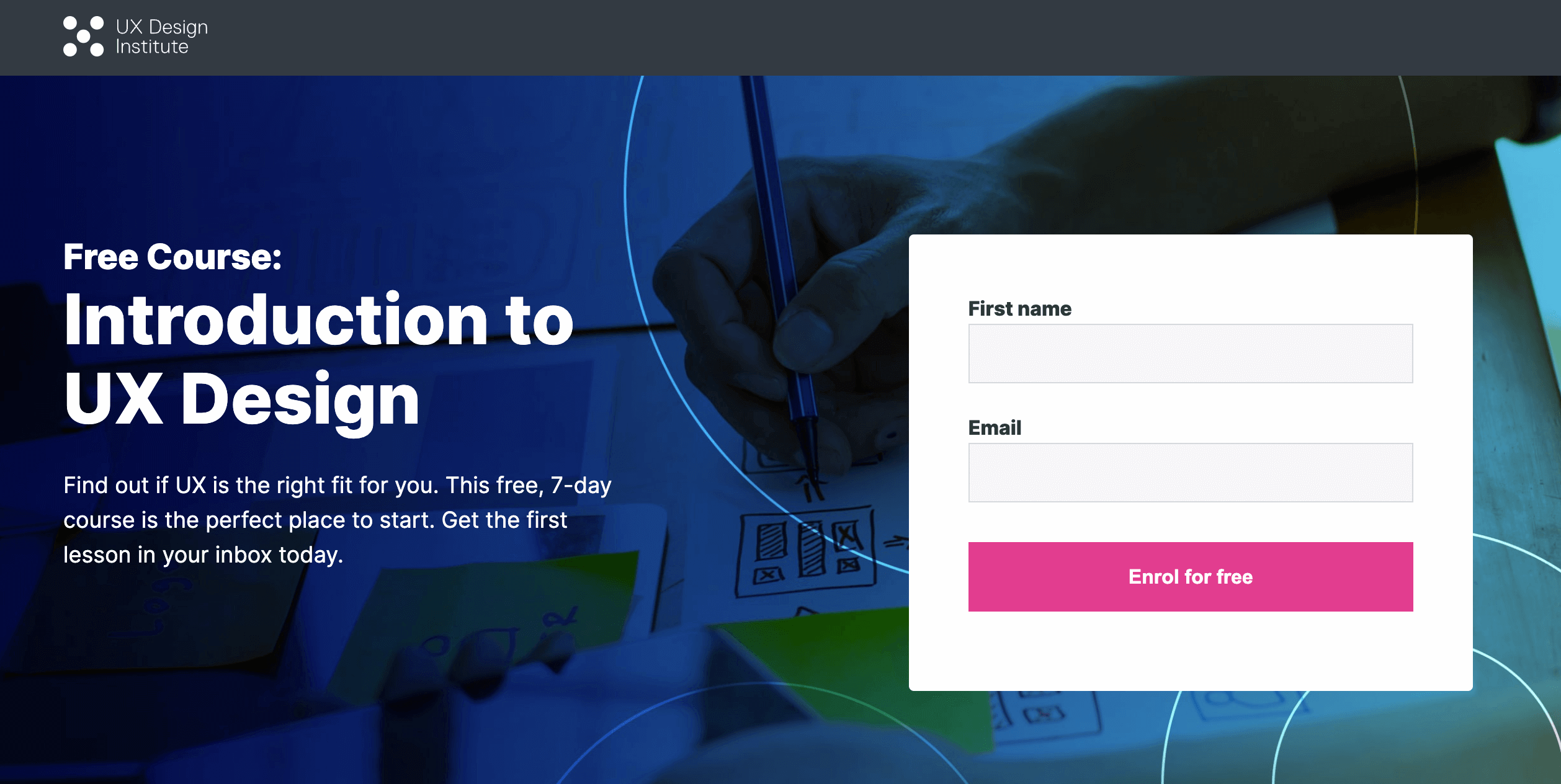
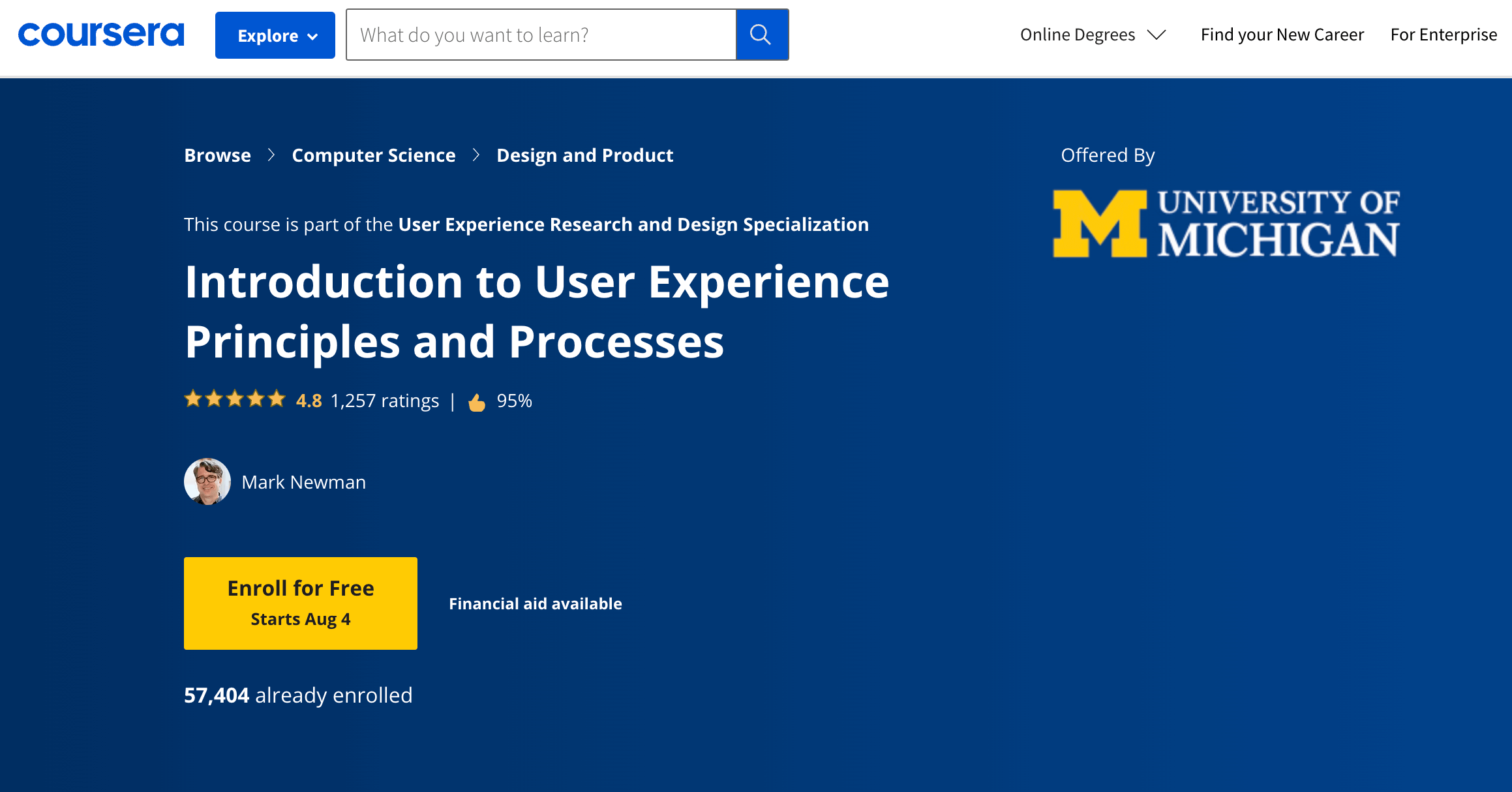
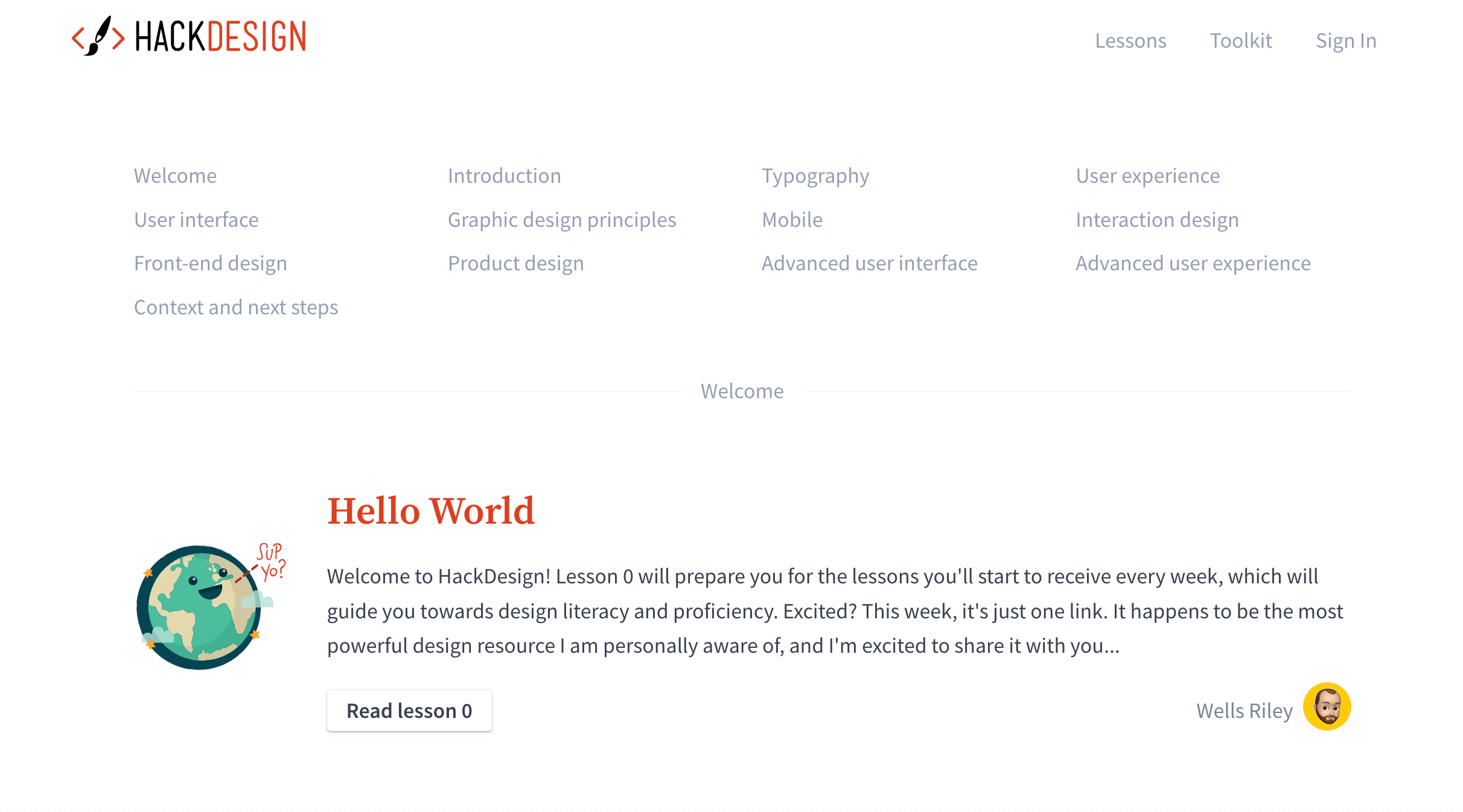
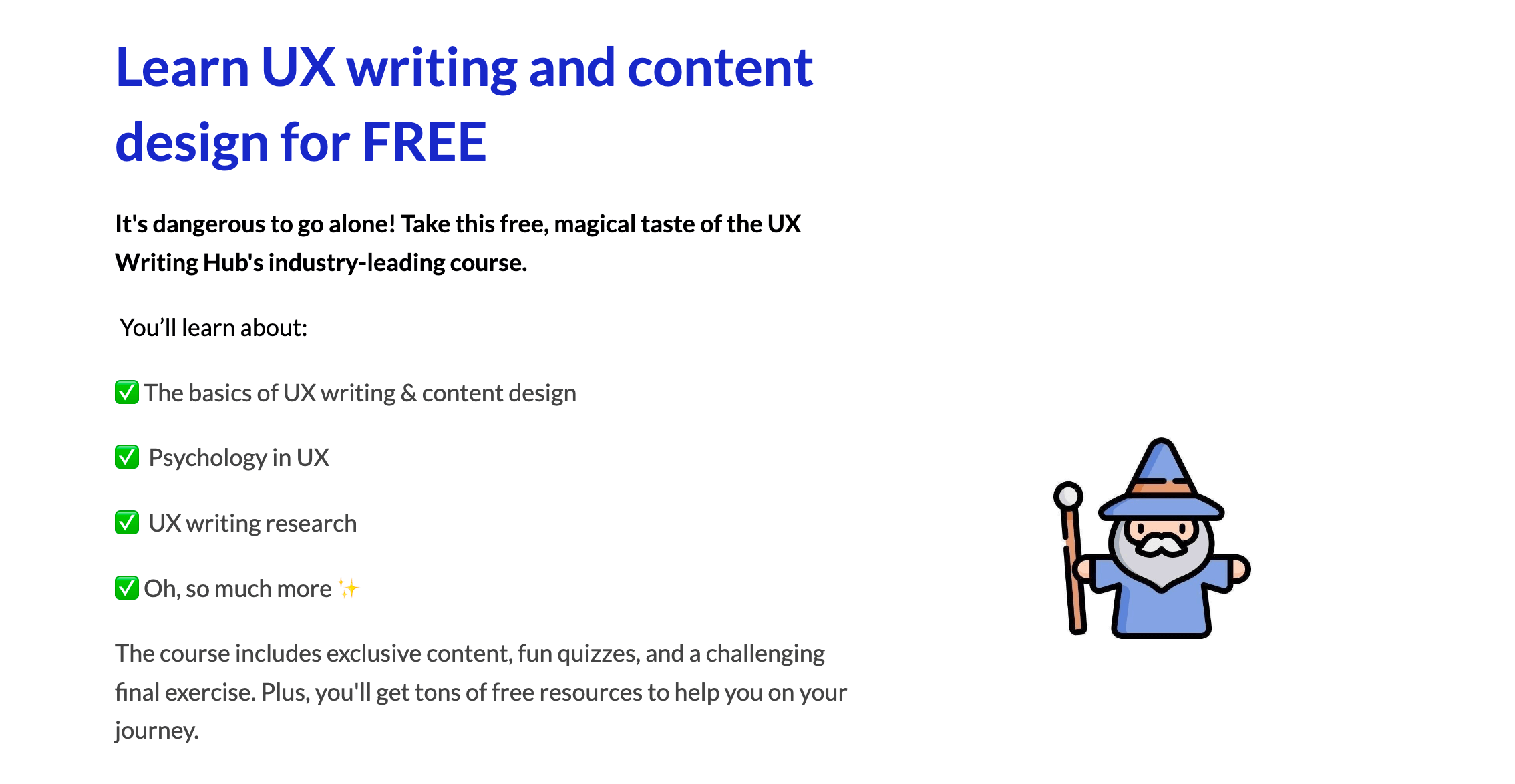
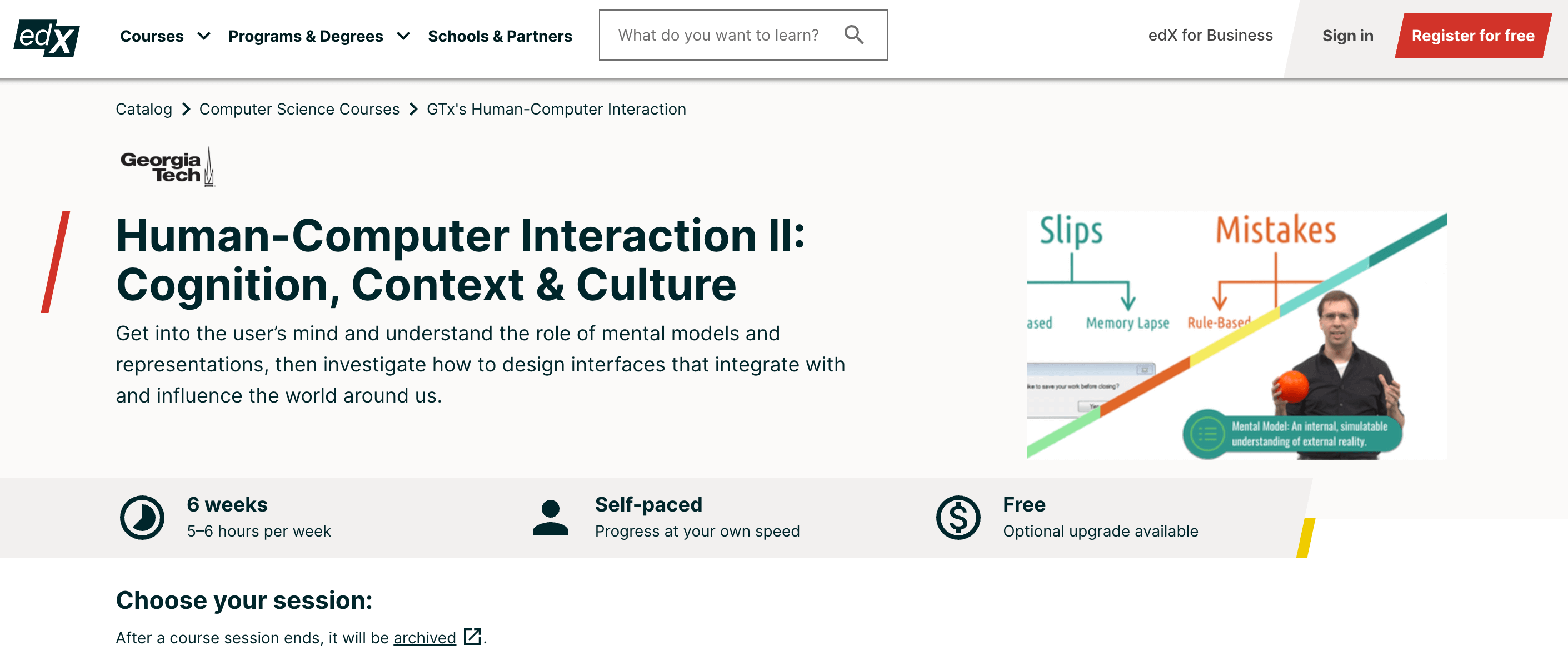
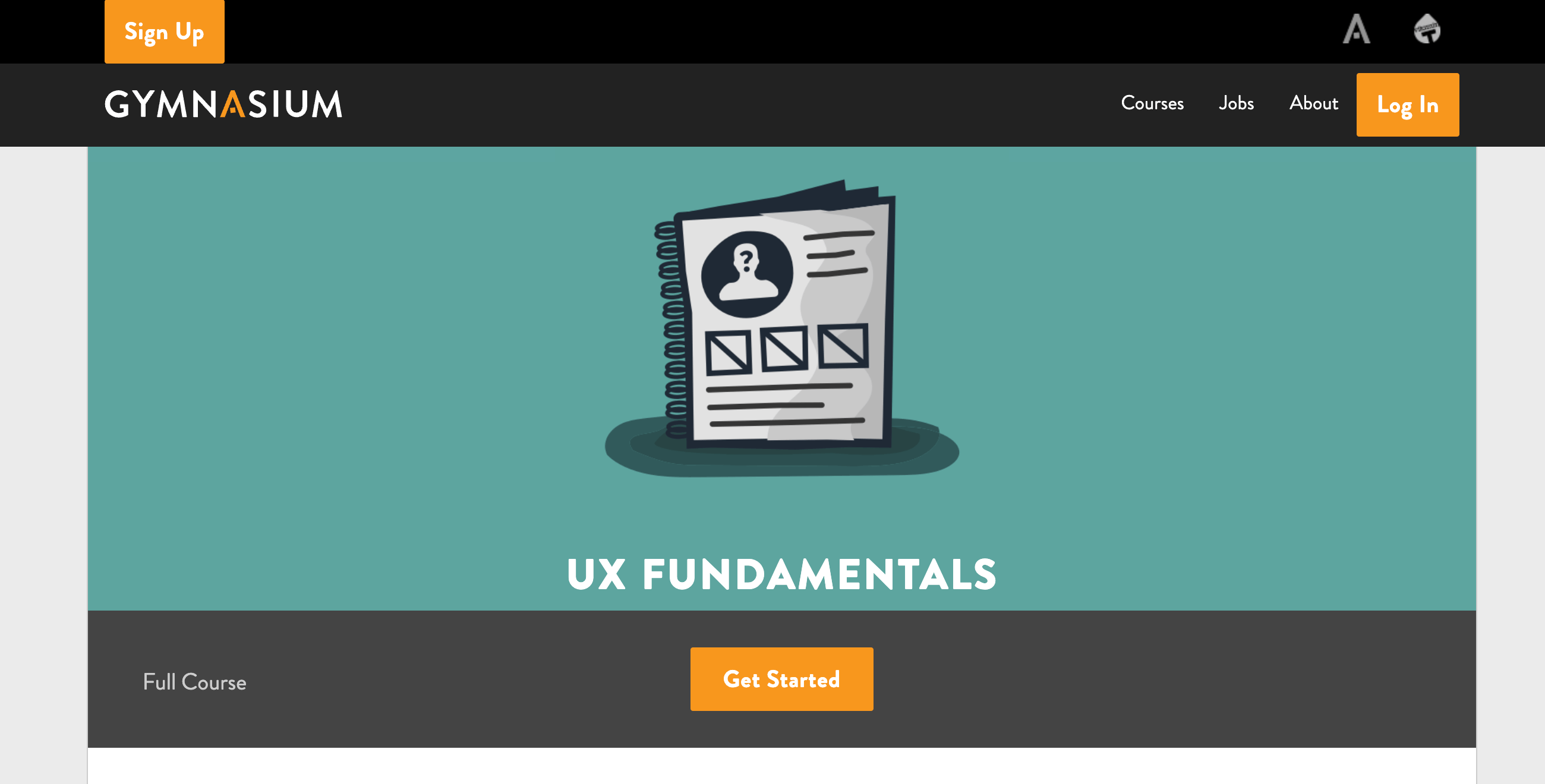
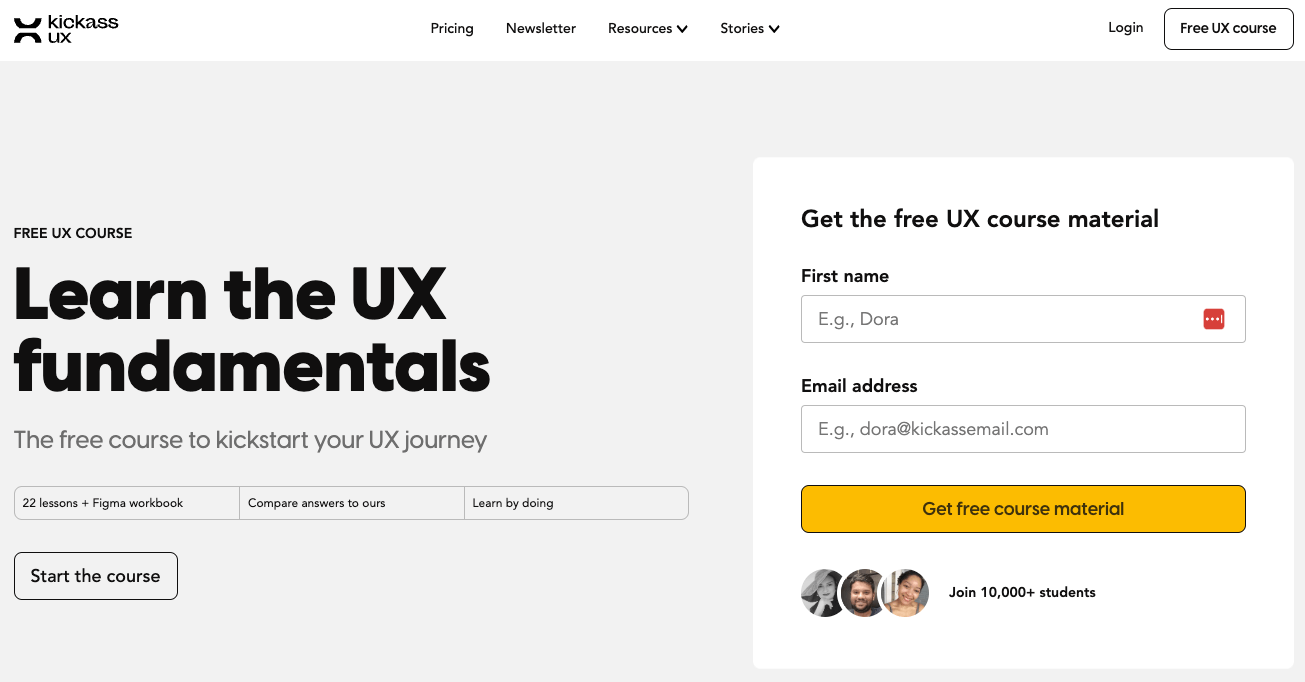

![What does a UX designer do? [2025 Update] 10 what does a ux designer do blog header image](https://www.uxdesigninstitute.com/blog/wp-content/uploads/2020/09/10_What-does-a-UX-designer-do_Image.png)
